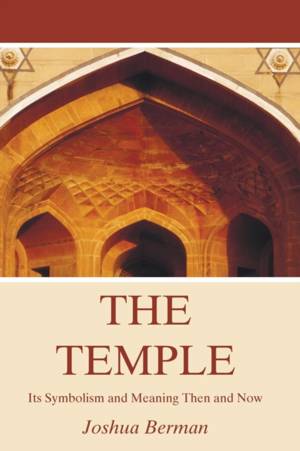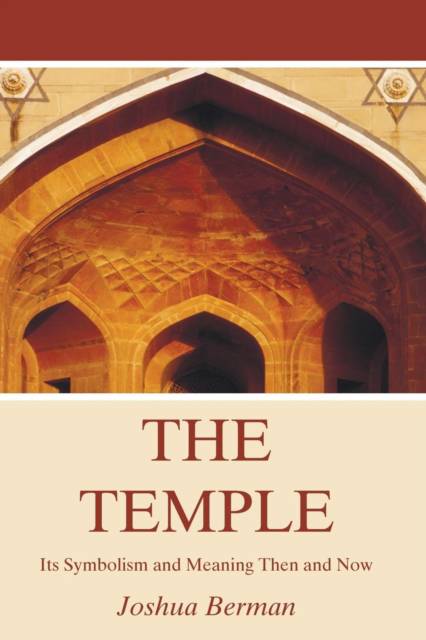
- Retrait gratuit dans votre magasin Club
- 7.000.000 titres dans notre catalogue
- Payer en toute sécurité
- Toujours un magasin près de chez vous
- Retrait gratuit dans votre magasin Club
- 7.000.0000 titres dans notre catalogue
- Payer en toute sécurité
- Toujours un magasin près de chez vous
Description
When thinking of the ancient Temple of Jerusalem, one often conjures up images of animal sacrifice, pilgrimages to the Holy City on religious festivals, and the High Priest solemnly entering the Holy of Holies on Yom Kippur. Indeed, each of these observances was a staple of Temple ritual, but it is easy to lose sight of the Temple as it impacted, and impacts, upon the daily life of Jews and their physical and spiritual responsibilities. Building the Temple is not merely one commandment of many; it cannot be examined in isolation. This volume shows how the Temple relates to the notions of Shabbat, the land of Israel, monarchy, Jewish independence and sovereignty, education, justice, covenant, Sinai, the garden of Eden, the Jewish relationship to the gentile world, and the very way the Jew relates to God. From a biblical viewpoint, the Temple is not only the central institution of the ideal Jewish society but also the central concept that binds and organizes all others. The minutiae of the Temple as portrayed in the liturgy and in the Bible often seem tedious and overritualistic. Classical sources of all genres abound to explain a particular passage or a particular rite. This book identifies broad themes that animate the meaning of the Temple, its rites, and the biblical passages that describe it. Details are probed as a larger conceptual whole. Animal sacrifice, particularly problematic to many on moral grounds, is examined in a new and revealing light. Many Torah commandments stand unchanged for all time regardless of historical events. Not so the commandment to erect the Temple. Social, economic, political, and religious currents were integral to the Temple's construction, destruction, and reconstruction. By probing these currents from the Bible's perspective, one can gain insight into the meaning of the times in which we live; we are in a process of rebuilding, even though we are far from redemption.
Spécifications
Parties prenantes
- Auteur(s) :
- Editeur:
Contenu
- Nombre de pages :
- 276
- Langue:
- Anglais
Caractéristiques
- EAN:
- 9781608997763
- Date de parution :
- 01-10-10
- Format:
- Livre broché
- Format numérique:
- Trade paperback (VS)
- Dimensions :
- 152 mm x 226 mm
- Poids :
- 385 g

Les avis
Nous publions uniquement les avis qui respectent les conditions requises. Consultez nos conditions pour les avis.






